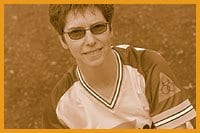Frustration, disappointment, anger. These are some of the feelings local athletes are having about the schism over the Gay Games in 2006.
“A lot of people are still quite angry at both organizations,” says Paul Savard, a member of the executive of Team Toronto. “I know a bit about what’s been happening because I was our federation rep and I’m kind of unhappy at both organizations.”
In case you haven’t been following the melodrama, Montreal was awarded the Gay Games for 2006, but, after two years of preparation and negotiations, the city split with the Federation Of Gay Games (FGG) last November and announced it would hold its own games, called Rendez-Vous Montreal 2006.
The FGG held its bidding process again and on Mar 2 awarded the 2006 Gay Games to Chicago. So now, within two weeks of each other in July 2006, there will be two international queer multi-sport athletic events.
Toronto athletes are torn between which event to attend, though there’s a sense that there’s a slight preference for Montreal.
Liz Devine is a member of a fundraising and support group of female athletes called Women4-Montreal/Gay Games 2006. They were called Women4Sydney four years ago in the run-up to the Gay Games in that Australian city. The new name has an element of neutrality toward both host cities.
“We have an existing logo with Women4Montreal on the top line and Gay Games on the second line,” Devine says. “We go informally by the name W4M or Women4Montreal, but we want women to feel that they can decide which event they can go to and we will be supportive.”
Despite her group’s support for each athlete’s personal decision, she says there is a leaning toward Montreal for a number of reasons. For one, Women4Montreal had long ago committed to Montreal (hence their name). Plus there are factors of national pride and US politics to consider.
“The US election, US policies, what happens over the next two years, what happens in international politics, may certainly affect what happens with decisions around which, or any, games people want to go to,” she says. “There may be issues around their HIV status, there may be issues around whether or not [athletes from other countries have] been supportive of the US or not.”
(The United States does not allow HIV-positive people to visit unless they apply 30 days in advance and receive a waiver acknowledging that they are not suffering from any symptoms, have enough money or insurance for possible US medical bills and will not pose a danger to public health in the US. Some academic, educational, cultural and sporting events can be eligible for blanket waivers, where all attendees are exempt from queries about their HIV status.)
Devine, who has competed in the last four Gay Games in hockey, softball and triathlon, is diplomatic about the break. But having to choose is something that doesn’t make Toronto athletes very happy.
“The women in our group were very disappointed and really sad that they [the Montreal bid committee and the FGG] couldn’t come to terms,” she says.
Despite his frustration, Savard is reluctant to criticize either side.
“I have my own personal opinions that I will not talk about,” says Savard.
He says Team Toronto will let athletes choose where they want to go – or both if they can afford it.
“A lot of people are angry with the federation so they’ve decided to go to Montreal. Others are saying, well, Chicago is the real Gay Games, so they are going to go there. Basically it is a matter of belief and choice.”
Devine says the Gay Games have traditionally been a unifying force and a great experience for gay and lesbian athletes.
“It really is a life changing experience when you go, particularly when you have competed in organized sports in other environments because there is so frequently an edge of homophobia and heterosexism that is very pervasive in organized sport,” she says. “The fact that you can go and be celebrated for your achievements whether you are a first-time competitor or been competing all your life. It is a really wonderful experience.”
Savard says most athletes don’t seriously work on fundraising or making important decisions until much closer to the event, though Devine points out that Women4-Montreal started fundraising during Pride 2003.
“We already launched our campaign and now are shifting into second gear – finding women to go,” she says.
Team Toronto has sent out an e-mail survey to its membership; Savard says they hope to start getting some responses in the next couple of weeks. Both groups are having meetings this month to talk about the split.
“I think we’ll get a much stronger sense at the two meet-ings we have,” Devine says.
Devine and Savard believe both events will go ahead, one way or the other.
“We were hoping right up until the games were awarded to Chicago that lightning might strike and everyone might be able to find a way to resolve the impasse,” Devine says. “It looks like that’s not going to happen but I hope both events are successful. I certainly think there are enough LGBT [lesbian, gay, bisexual and trans] athletes and cultural participants to make two sets of games work.”
* Women4Montreal meets Tue, Apr 6 at 8pm and the Team Toronto membership meets on Tue, Apr 13 at 8pm. Both meetings are at the 519 Community Centre (519 Church St).

 Why you can trust Xtra
Why you can trust Xtra


